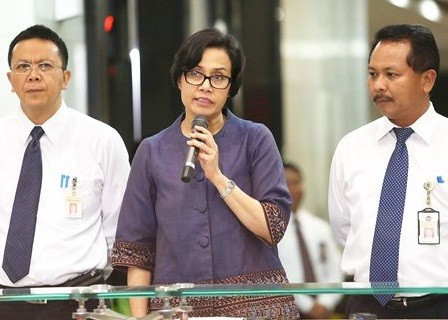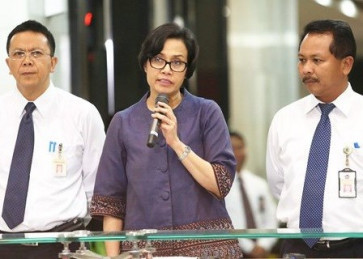Popular Reads
Top Results
Can't find what you're looking for?
View all search resultsPopular Reads
Top Results
Can't find what you're looking for?
View all search resultsAnalysis: Bansos drives government, household consumption steady
Change text size
Gift Premium Articles
to Anyone
T
he impact of the 2023 social assistance (bansos) program on the national economy has been reflected in Statistic Indonesia's (BPS) most recent national economic growth report. Whereas government expenditure experienced rather extreme fluctuations between Q3 and Q4 of 2023, which is during a period of aggressive social assistance (bansos) programs, household consumption remained steady, raising concerns over the effectiveness of bansos in boosting the people's purchasing power.
Government expenditure contracted by 3.7 percent quarter-to-quarter (qtq) in Q3 before growing sharply by 39.13 percent qtq in Q4 when the government started to aggressively distribute bansos. However, on annual basis, the government expenditure's growth of 2.81 percent year-on-year (yoy) in Q4 and 2.95 percent yoy in the full year of 2023 were rather conservative, indicating a pattern in which the government waits until the last quarter of the year to spend the rest of their budget for the year.
Meanwhile, whereas household consumption saw increase in its quarterly growth from a contraction of 0.46 percent qtq in Q3 to a miniscule increase of 1.58 percent qtq in Q4, its annual growth fell from 5.05 percent yoy in Q3 to 4.47 percent yoy in Q4. This comparatively lower growth in household consumption for Q4 2023 is curious as it coincides with aggressive bansos programs, which was one of the main drivers for the spike in government consumption in the same period.
It would normally be expected for bansos to drive household growth in Q4 2023 at a much higher rate than the same period in 2022 when bansos programs were not as aggressive, as the public ought to have more disposable income the more cash transfer they get from bansos. However, the impact of bansos on household consumption may have been subdued by the high volatile inflation in Q4 2023.
Volatile inflation, which was mostly driven by food, was recorded on the rise throughout Q4 2023, precisely by 0.21 percent month-to-month (mtm) in October, 1.72 percent mtm in November, and 1.42 percent mtm in December 2023 with El-Nino partly to blame. Meanwhile, in 2022, volatile inflation contracted in October and November, before growing 2.24 in December. Therefore, the positive growth of household consumption in Q4 2023 shows that bansos had helped maintain household consumption steady amid rising food prices.
Unfortunately, some interpret the decelerating household consumption to fuel the longstanding criticism against the effectivity of the government's social assistance programs, especially in the light of additional bansos to be distributed during the election season this year. Within government circles, there is even speculation that the increasing politicization of government programs and the state budget for 2024 is prompting Finance Minister Sri Mulyani to consider resigning from her post.
Bansos gives the biggest impact when food prices are rising. According to BPS, rice inflation grew 0.64 percent mtm and 15.65 percent yoy in January 2024. Information Center for Strategic Food Price (PIHPS) data also shows that rice prices are still high, with the current average prices for low quality rice in traditional markets ranging between Rp 13,800 and Rp 14,000 per Kg, although they have also remained relatively stable since December 2023. Therefore, the need for bansos in the early months of 2024 is evident. However, the amount of bansos to be distributed is another debate.



















